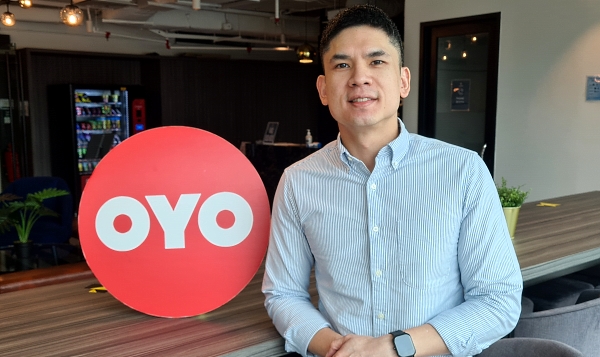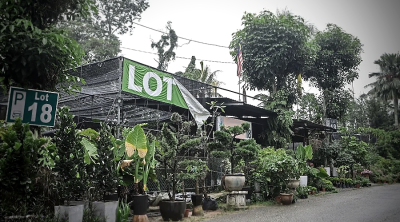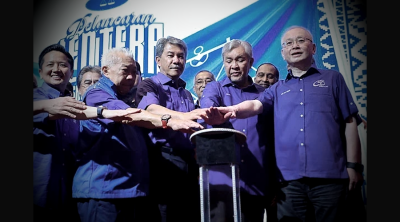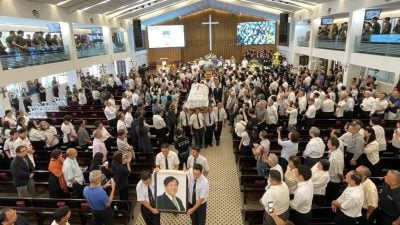By Tan Ming Luk

It has been approximately six months since interstate travel was banned on 13 Jan 2021 and over a month since the total lockdown was implemented in Malaysia on 1 June.
Despite the lockdowns, the COVID-19 positivity rate in the country has been erratic, with positive cases dropping to a low of 4,611 on 21 June, and rising to daily cases above 6,000 for the past week, while the R0 remains above 1.00, an indication of active community spread.
The telltale signs are clear — the lockdowns and movement control orders are not succeeding in curbing the spread of the virus.
Amidst this, the four-phase National Recovery Plan targets to only allow interstate travel, domestic tourism and social activities in Phase 4, when 60% of the population has been vaccinated.
A quick calculation based on the latest vaccine delivery timeline estimates that a 60% two-dose vaccination coverage is only likely by end-October at the earliest, if daily vaccination can be maintained at 300,000 doses or more.
To date, only about 21% of the population have been given their first dose and less than 10% are fully vaccinated.
The hospitality industry which loses an estimated RM300 million for every two weeks of the pandemic and ongoing travel restrictions, cannot wait for the whole country to get case numbers under control, looking at the difficulty in managing hot spots, or even for 60% of the population to be inoculated.
Tourism is the third biggest contributor to Malaysia's GDP after manufacturing and commodities, adding RM86.14 billion to Malaysia's economy in 2019.
Since the start of the pandemic, the overall Malaysian tourism industry has already lost RM100 billion in total.
OYO is of the opinion that mindsets need to change from what we cannot allow to what we can allow (activities that are low risk).
Malaysia should emulate Thailand in initiatives like the Phuket Sandbox but on a wider national level, and allow hotels to serve guests who are fully vaccinated.
The Thai government expects about 100,000 foreign tourists to visit Phuket in the third quarter of this year and generate 8.9 billion baht (USD278 million) in revenue — and we should make our own targets.
Further delays to the reopening of hotels will threaten the industry's survivability, impacting the livelihoods of everyone employed in it, especially in states that are heavily reliant on tourism as an economic contributor.
Why should the hospitality industry in Malaysia, which has created almost zero clusters, be made to pay for the irresponsibility of others?
Malaysia needs to restrategize its COVID-19 containment measures by adopting a more targeted approach instead of broad sweeping restrictions — considering that the number of daily recorded cases has not significantly dropped despite a month-long total lockdown.
This is especially true in sectors like hospitality that rely on the ability to travel interstate, where states with few cases are still held hostage to the performance of more populous states.
The recovery of the tourism and hospitality sector is dependent on how fast tourism destinations and tourism source markets rebuild trust in each other.
Robust vaccination rates can contribute to building trust, but we must not overlook the role of the federal and state governments effectively aligning with the hospitality industry to rebuild trust in this sector.
The recent PEMULIH 2021 plan announced by the Prime Minister undoubtedly helps tourism and hospitality businesses through tax exemptions, electricity bill discounts and loan moratoriums, but equally crucial is clarity on when they can restart operations.
Hotels in particular need time to prepare, where 60% of bookings are made two weeks in advance.
One way is to link the vaccination schedule to the opening of the economy.
We have control over the vaccination rate and this will give some visibility for businesses to plan ahead.
The government needs to give the hospitality industry the confidence and certainty it needs for reopening. If we want the reopening to be successful, we must confirm the opening date, set clear guidelines and SOPs for the sector.
We need to act now, pivot to the new normal and liberate our thinking from the box. By leveraging opportunities and learnings, this can be a moment for creating a new virtuous cycle to replace the vicious cycles of the past. The ball is in the government's court.
We urge the government to change their approach to ensure that no one is left behind.
It can start by trusting the hospitality industry to do what's required to keep their guests safe at all times. After all, the industry has proven itself an able and willing partner in the fight against the pandemic.
It's now time for the government to reciprocate that trust.
(Tan Ming Luk is Vice-President and Head, Malaysia & Singapore, OYO, the world's leading chain of hotels and homes operating in over 800 cities in 80 countries.)
ADVERTISEMENT
ADVERTISEMENT


































